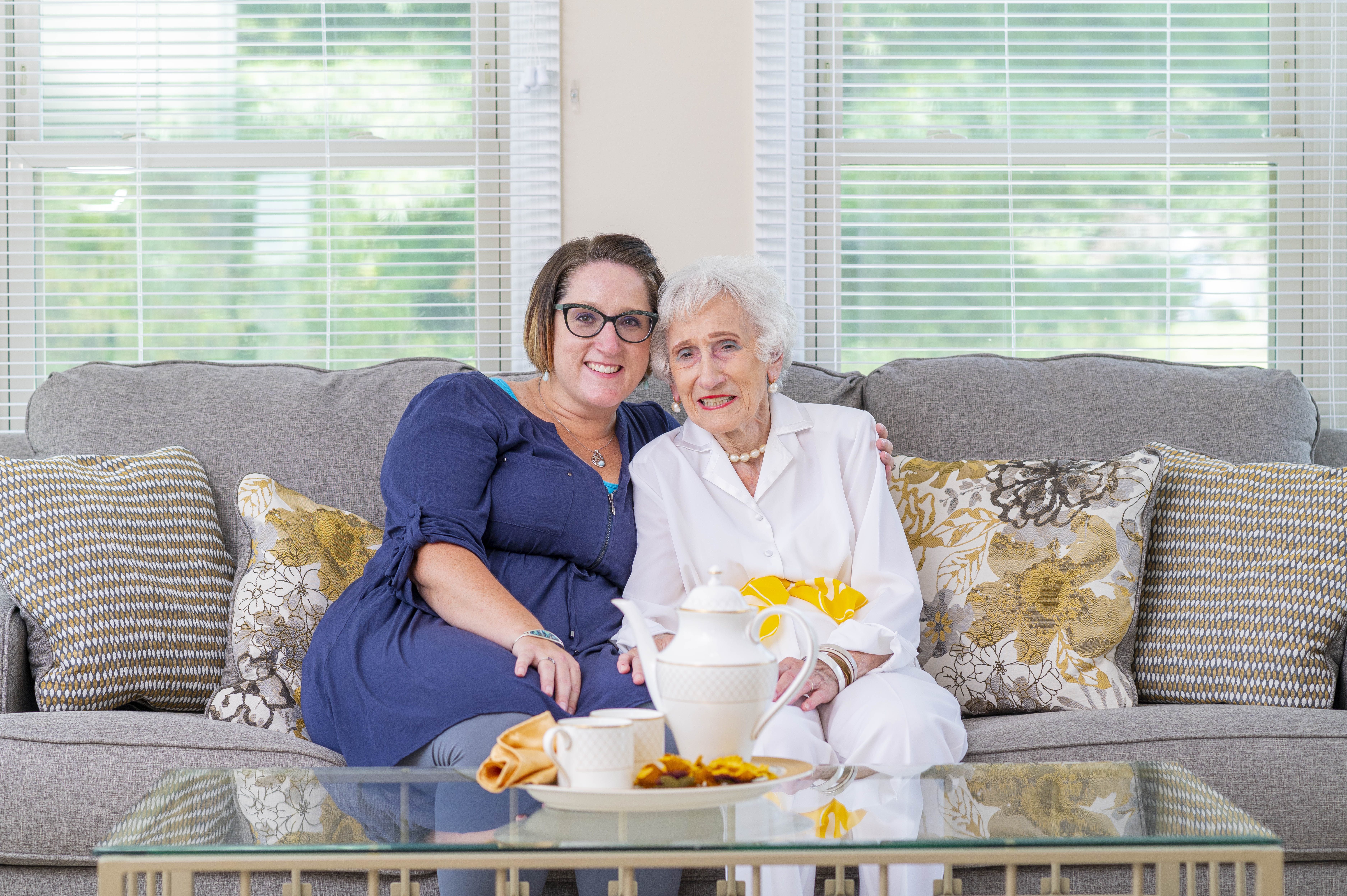According to the Centers for Disease Control, caregivers often pay a high toll for their labor of love:
- 35% of caregivers have difficulty finding time for themselves
- 29% experience emotional and physical stress from their rol
- 54% said their health has gotten worse due to caregiving
- 29% have difficulty balancing family and work responsibilities
Do any of these statistics describe you? If so, it’s time to take charge of your own health and well-being. Read below for caregiving tips that can help make your job easier and allow more time for taking care of you.
Tip 1: Recognize the Importance of Your Job as a Caregiver
You might not think of what you do as a job or even as special - but it is. Taking care of another person requires time, energy, and money in ways you may not have expected. 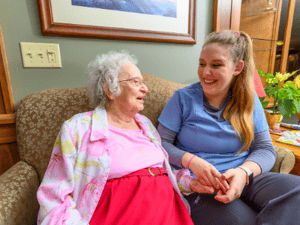
Remember to go easy on yourself.
It’s OK that you didn’t do everything perfectly or that you and your loved one had a bad day. It’s OK to feel overwhelmed or any of the emotions that may crop up - like annoyance, frustration, or resentment. And it’s OK to not want to be a caregiver forever.
The most important thing to remember as a caregiver is that if you’re doing the best you can do, you’re doing the right thing. No one is perfect, and the time and resources you’re spending on your loved one are making a difference.
Tip 2: Set Caregiving Priorities and Ask For Help
You can’t do everything yourself, and there are only 24 hours in a day. Let go of feelings of guilt that you weren’t able to get all the items done on your to-do list, and instead congratulate yourself for completing what you could.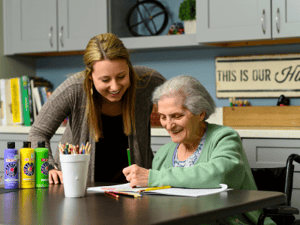
Make life easier for yourself by asking for help with tasks and errands. This will help clear your own plate and allow you to focus on what’s most important. If you have friends and family members want to help but aren’t sure what to do, assigning them a specific task will help them feel purposeful and help you stay balanced.
Try one of the following ideas to free up time in your day:
- Create a list and ask a friend to pick up groceries, or use a grocery delivery or pickup service to cut down on time.
- Enlist your spouse, kids, or other family members to take on chores at home, if you haven’t already done so. There’s no need to do everything yourself.
- Delegate big tasks or things you just don’t have the energy for, and don’t be afraid to say no. For example, if you always host a holiday dinner but it’s out of the question this year, see if someone else can help.
- Block time in your schedule for specific tasks. Yes, it’s true that no two days will be exactly alike as a caregiver. But if you know certain tasks need to be done, carve out that time on your calendar so you can know what’s coming and plan ahead.
You also shouldn’t be shy about reaching out to organizations that can provide support and help you through your caregiving journey. Check with a local Area Agency on Aging, religious organization, or nursing home to discover support groups and other local resources. You can also visit the National Alliance for Caregiving website.
Tip 3: Find Time For Yourself as a Caregiver
Caregiver burnout is a real problem when you’re stressed and don’t have the time to take care of yourself. But if you want to function at your best, take the Mayo Clinic’s advice: “Remember, taking care of yourself is not a luxury. It is an absolute necessity for caregivers.”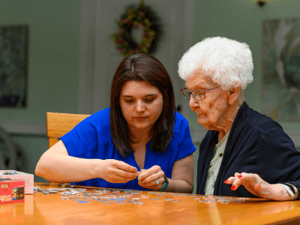
Even five- to 10-minute breaks throughout the day can help you recharge and relax from your role of caring for a loved one. Try some of the following activities for caregivers to feel their best and provide the best care:
- Find a form of relaxation that works for you - whether it’s meditation, deep breathing, reading a book, or just taking time to look out the window.
- Eat well and include foods in your diet that nourish your body. Try to avoid excessive amounts of refined sugar and caffeine, which can make you feel worse. If cooking is a chore, look for easy-to-prepare options or try one of these recipes from AARP.
- Try to get enough sleep. While this may be difficult if your loved one is often up at night, see if there are ways you can help. For example, talk to your loved one’s doctor, or try taking a short nap when your loved one does.
- Work exercise into your day - even short bouts of walking or light movement. Exercise improves your mood as well as your overall health and doesn’t need to last long to produce benefits.
- Stay connected with family and friends, or with other caregivers who understand what you’re experiencing. Social interaction is key to feeling your best and being able to relieve stress.
The Family Caregiver Alliance’s guide to self-care is a good resource that will help you understand why taking time for yourself is so important and give you tips for getting started.
Tip 4: Take a Break When You Need It With Respite Care
Sometimes, you need a longer break from caregiving - whether it’s just a few hours or a few months.
Otterbein offers overnight stays for seniors who need assistance with daily living. This service, called respite care, allows caregivers to have some much-needed alone time without worrying about their senior loved one’s well-being.
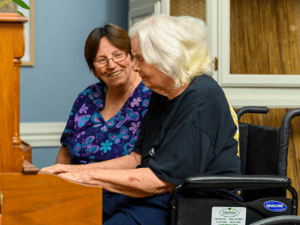
Caregivers often use the time that respite vacations give them to avoid becoming burned out. Whether it’s a “stay-cation” or resort giveaway, these breaks can be immensely refreshing. And in fact, the National Respite Network recommends that caregivers consider respite care before they become overly stressed or tired:
In addition to providing worn-out caregivers a respite vacation, this time can also serve a number of other purposes. It’s often a godsend for families when
- The primary caregiver falls ill
- There is extreme weather
- Urgent business or family travel is required
Additionally, families and seniors can use Otterbein’s respite services as an opportunity to try us out without making a long-term commitment. Respite stays can help you decide if Otterbein would be a good fit for your loved one if additional care becomes necessary down the road.
Learn more about respite care at Otterbein SeniorLife.


